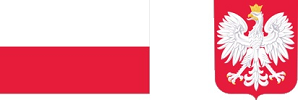Objectives of the conference
The primary objective of the international conference is to present the current state of research on the work of Jacob Böhme and its multifaceted reception in European culture. The reflection of Böhme, a humble shoemaker from Görlitz and a visionary penetrating the mystery of God’s life and articulating it in a symbolic and narrative form, is characterized by semantic potential, inspiring the most outstanding artists and philosophers. Spiritual affinity with the Silesian mystic was found by Goethe, Hegel, Schelling, Baader, and A. Mickiewicz, among others. Another Silesian mystic, Angelus Silesius, situates Böhme in the heart of God. The figure of filiation has been adopted as an interpretive mark, unifying and organizing the study of Jacob Böhme’s work. Firstly, it allows us to identify the spiritual, discursive, and symbolic genealogy of mysticism and the thought of the shoemaker from Zgorzelec Lutheranism, German mysticism, Kabbalah). Secondly, this figure opens the perspective of reception and influence. The search for a spiritual genealogy that transcends the empirical-rationalist positioning of modernity, which in its Enlightenment paradigm rejects the legitimacy of thinking grounded in religious tradition and its associated symbolism, for example, Hegel and Schelling, pointing to Böhme’s work as the forgotten source of modernity and the proper beginning of German philosophy, legitimizes, in the context of Kant’s critical philosophy, speculation, and dialectical method, while at the same time attempting to translate the symbolic language of the Theosophist of Goerlitz into a conceptual system. Finally, as a leitmotif of Böhme’s thought, one can treat the question of the sonship of man, the death of the “old man” and the birth of the “new man”, of man’s axiological and spiritual transformation, his domiciliation in the world, while opening up to transcendence. This archetype of the man’s transfiguration in the context of his divine pre-image expresses the aspiration for the reconstitution of the original form of humanity, namely, man’s participation in the life of God (Gelassenheit).
Böhme’s gnosis transcends the framework of Christianity understood as an institutional-doctrinal order toward an ecclesia spiritualis (the Church of St. John Schelling) in which being in Christ overrules confessional oppositions and disputes (Mysterium Magnum). This type of thinking about God is oriented toward Christian practice, in which knowing Christ means coming closer to him, a conformation that transforms the human heart. It is not based on the “brick church” but on the Logos, “the heart of God” (Morgenröthe).
An important issue is the phenomenon of melancholy, which corresponds, on the one hand, to the experience of acedia described by the Desert Fathers and, on the other hand, to the Heideggerian trepidation with which man, in his own mortality, faces the truth of being and the meaning of his own existence. Grounded in the mystical tradition, the “night of faith” (St. John of the Cross) represents the spiritual experience of a person living in the age of the “night of the world” ,the “death of God”, and the hiddenness of God. This experience can be framed in the scheme of God’s nearness and therefore as a discursive figure of spiritual initiation, a “second birth” that becomes a birth from the spirit.
Proposed topics
The conference will focus on the aspects of Jakob Böhme’s work made visible in the given contexts:
- the traditions of German mysticism, Lutheranism, and Catholicism;
- Kabbalah and gnosis;
- the culture of the Silesian Baroque, especially the poetry and thought of Angelus Silesius;
- German Romanticism - , among others Goethe, Novalis;
- German idealism - Hegel, Schelling, Schopenhauer, Baader;
- Russian culture and philosophy - Solovyov, Berdyaev;
- literary and philosophical themes in Polish culture;
- Polish research on the work of the Theosophist (Piórczynski, Kosian, et al,)
- the presence of symbols and Böhme’s thought in theosophy and anthroposophy (among others C. G. Jung, R. Steiner, J. Prokopiuk,);
- the spiritual condition of modern man and its philosophical, literary, and theological treatment in the context of the problems of evil, human self-salvation, the "death of God", the transgression of metaphysics, the crisis of Christianity and its historical-institutional-dogmatic form.
Languages of the conference: Polish, German, English
Submission of paper proposals
Abstracts of papers, covering 1000-1500 characters, should be sent by 31.10.2023 to
Boehme2023@pans.nysa.pl
Conference fee: 60 EURO
Hotels Nysa





